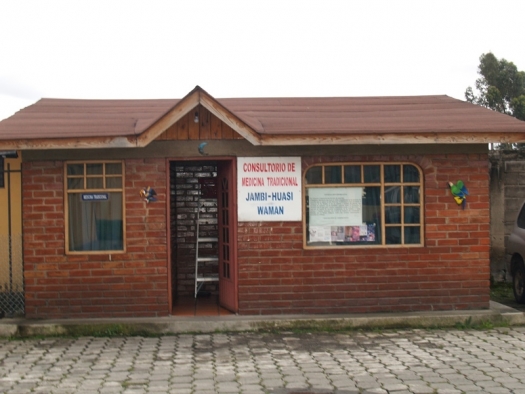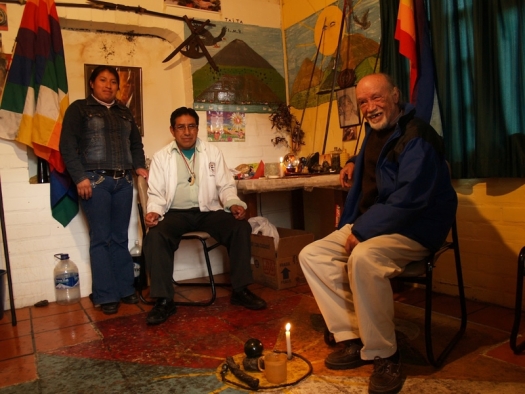Site Visit
- Location: Quito, Ecuador
- Date: Fall 2008
- Site visitor: Ferdinando Pisani
GuamaniClinicBuilding.jpg

Photo by Ferdinando Pisani, ©2008 / FAIM
The Guamani Clinic building
The Foundation for Alternative and Integrative Medicine (FAIM) visited The Guamani Clinic, a government supported public health centre situated in the homonymous, low-income and very populated section of Quito, Ecuador. On the outside, this clinic seems like the typical public health facility. Inside we discovered that it offers an array of complementary and alternative medicine therapies.
Complementary and Alternative Medicine Program
The Guamani clinic's complementary and alternative medicine program started as a community project when members of different ethnicities demanded the right to integrate their traditional medicines in the public health system. This was initiated by including a "Taita" (literally father) who is a Quichua traditional healer from the Central Andes. Patients pay for his services. The rest of the clinic's services are fee of charge. Taita Rafael (whose name etymologically means "Healer of God") described his different treatments to us. He showed us a cleansing ritual used to eliminate bad or negative energy that might cause the person to fall ill or have bad luck. This is the service most requested by his clients.
Taita Rafael also showed us the arsenal of different traditional herbs. The effectiveness of these herbs is now starting to be recognized by conventional medicine: the most notorious is Cat's Claw (Uncaria tomentosa) used as anti-inflammatory medicine. Most of the clients come to him directly but many are referred to him by conventional physicians whose therapies are not working. Taita Rafael says that he also refers some of his patients to other doctors when he sees problems that can best be solved by conventional or other complementary and alternative medicine therapies.
GuamaniClinicInside.jpg

Photo by Ferdinando Pisani, ©2008 / FAIM
Inside the Guamani Clinic
Dr. Molina, who is the director of the clinic and a conventional emergency physician, gave us a tour of the rest of the infrastructures. Apart from conventional therapies, the Guamani Clinic offers mainly the following complementary and alternative therapies: biomagnetism, syntergenetics medicine and homeopathy. Homeopathy was legalized in Ecuador by the initative of Dr. Lautaro Puente, a homeopathic practitioner who became a congressman. He promoted Law 100 which allows homeopathy to be practiced freely by doctors, thus giving patients the right to choose this kind of therapy and simultaneously protecting the practitioner.
The Guamani Clinic has been rated the country's best public health facility for the past 10 years. The National Assembly (parliament) has recently received the staff of the clinic and commended them for their good work. The Health Ministry would like to expand this model to the rest of the country.

